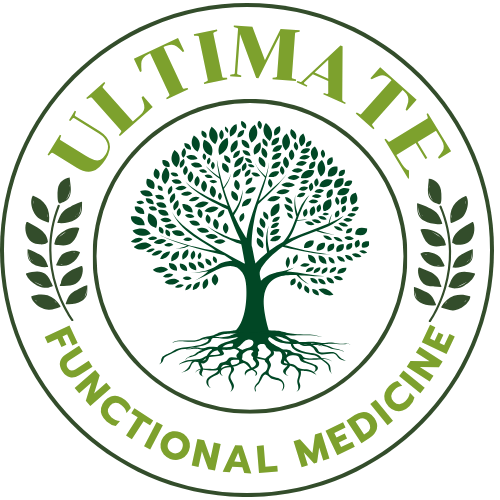For those struggling with chronic illness, few things are more frustrating than hearing, “Your lab results look normal.” You know something is wrong—fatigue, brain fog, digestive issues, and unexplained pain are all too real—yet conventional medical tests provide no clear answers. This disconnect isn’t just in your head, nor is it necessarily your doctor’s fault. The issue often lies in a medical system designed to treat acute conditions, not uncover the complex web of factors driving chronic illness.
The Rising Tide of Chronic Conditions
Chronic illness is on the rise, with rates expected to nearly double in the next two decades for those over 50. Alarmingly, the CDC reports that more than 40% of school-aged children now suffer from at least one chronic condition. Unlike acute illnesses with clear, single causes, chronic diseases stem from intricate interactions between the body and various internal and external influences.
Why Standard Testing Falls Short
Traditional medicine excels at diagnosing and treating acute illnesses and injuries. However, when these same diagnostic methods are applied to chronic conditions, they often fall short. A “normal” test result doesn’t necessarily mean everything is fine—it may simply indicate that conventional testing isn’t detecting the real issue.
Many patients with chronic illnesses receive “wastebasket diagnoses” such as fibromyalgia, chronic fatigue syndrome, or irritable bowel syndrome. These labels describe symptoms without identifying their root causes. As a result, treatment often focuses on symptom management rather than addressing underlying imbalances.
Overlooked Factors That May Be Driving Your Symptoms
1. Chronic Infections
Some of the most commonly missed factors in chronic illness are low-grade, persistent infections. These infections don’t always show up on standard blood tests but can silently trigger widespread inflammation.
- Herpesviruses can remain dormant in immune cells, reactivating under stress and causing inflammation.
- Tick-borne illnesses such as Lyme disease can evade detection by hiding in connective tissues, nerves, and organs, leading to ongoing immune system dysfunction.
2. Nutritional Deficiencies Beyond the Basics
While standard lab work may check for Vitamin D or B12, many other essential nutrients influence metabolism, detoxification, and immune health.
- Amino acids and minerals support detox pathways.
- Antioxidants protect against inflammation.
- Healthy fats play a critical role in cell membrane integrity, impacting nutrient absorption, hormone function, and detoxification.
3. Environmental Toxins and Their Effects
Exposure to toxins doesn’t have to be acute to affect your health. Low-level, long-term exposure to heavy metals (such as arsenic, lead, mercury, and cadmium), pesticides, and industrial chemicals can trigger chronic inflammation and immune dysfunction. According to the CDC’s Agency for Toxic Substances and Disease Registry, heavy metals occupy seven of the top positions on their list of most concerning environmental toxins. Yet, standard medical testing rarely assesses them.
4. Structural Integrity and Nervous System Function
Many chronically ill patients have subtle structural issues that affect immune regulation.
- Hypermobility—even below the threshold of Ehlers-Danlos Syndrome—can disrupt immune function due to genetic overlaps between connective tissue and immune regulation genes.
- Neck and skull misalignments can impact the vagus nerve, which controls digestion, heart rate, and immune response. Even minor misalignments can reduce blood flow and lymphatic drainage, exacerbating symptoms.
How These Factors Interact to Create Chronic Illness
Chronic illness is rarely caused by a single factor. Instead, it results from an interplay of infections, toxins, nutrient deficiencies, structural misalignments, and psycho-emotional patterns. This complexity often leads to seemingly contradictory symptoms—an immune system that is both overactive (causing hypersensitivity to foods and environmental triggers) and underactive (failing to fight off infections effectively).
Your unique genetic expression determines how these imbalances manifest. Two people with similar lab results may experience completely different symptoms based on how their bodies respond to inflammation.
A Framework for Healing
Addressing chronic illness requires a multi-faceted approach. It begins with foundational health practices:
- Optimizing diet, lifestyle, stress management, and hormone balance. Without these basics in place, attempting to treat infections or remove toxins may trigger inflammatory flares.
- Regulating immune function. Before addressing infections or detoxification, stabilizing the immune system is crucial to avoid further imbalances.
- Targeted treatments for infections and detoxification. Once foundational health is established, precise interventions for infections, heavy metals, and environmental toxins can be introduced carefully.
- Addressing structural and emotional patterns. Nervous system imbalances contribute to inflammation and must be considered in the healing process.
Beyond Standard Testing: Questions to Ask Your Provider
If standard tests have left you without answers, consider discussing these advanced assessments with your healthcare provider:
- Comprehensive nutrient testing (e.g., Spectracell Micronutrient Analysis, Genova Nutreval)
- Heavy metal testing (non-provoked or provoked if appropriate)
- Environmental toxin screening (e.g., US Biotek, Real Time, Mosaic)
- Specialized infection panels (e.g., IGeneX, Infectolab for Lyme and viral infections)
- Microbiome analysis (e.g., BiomeFx, Parasitology Center, US Biotek, DiagnosTechs)
- Methylation and glutathione pathway assessment
- Genetic testing for personalized insights
- Structural evaluations to detect misalignments affecting nervous system function
Moving Forward: Finding the Right Healthcare Team
Navigating chronic illness requires a healthcare team that understands:
- Chronic conditions often have multiple root causes.
- Inflammation manifests differently in each person.
- Treatment order and timing matter significantly.
- Addressing inflammation’s sources is key—not just symptom suppression.
Reclaiming Your Health
The journey through chronic illness can be isolating, especially when conventional medicine tells you that everything looks normal. But by understanding the deeper factors influencing your health, you can take control of your healing process.
With the right approach—one that respects the complexity of your body and its unique needs—you can begin to restore balance and reclaim your well-being. Healing is possible, even after years of chronic symptoms.

